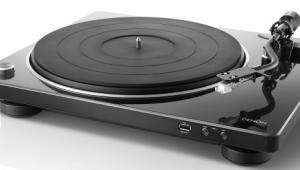Rule Britannia, Rule Sony

Those lyrics, set to rousing music by James Thomson in 1740, declared that Great Britain was the emerging world superpower. Fulfilling the patriotic acclaim of the song, Britain did indeed soon rule the waves, and in fact, the sun never set on the British Empire. Similarly, Sony Corporation ruled the waves of consumer electronics....
Emerging from WWII with 500 bucks in capital, Sony started manufacturing a simple tape recorder. Then co-founder Akio Morita persuaded Bell Labs to license its new-fangled invention, the transistor, to Sony. The rest is history. Sony dominated the consumer electronics industry for decades. Nothing made people (like me) prouder than the sight of the SONY logo on their TV.
Sony is still a powerhouse, but it doesn’t dominate anymore. The Trinitron CRT patents are long since expired, Sony pulled the plug on flat-screen FD Trinitron in 2008 and in any case, the TV business isn’t what it used to be. Tape recorders? I don’t think so. CD players? Maybe not. Years earlier, anticipating today’s realities, Sony diversified, and sought to merge electronics with entertainment content. Hardware plus software—the perfect fit. Principally, Mr. Morita engineered the purchase of Columbia Pictures in 1989.
That bold move gave Sony enormous leverage, but also raised its risk profile. As everyone in Hollywood knows, a few good movies can make billions, but a few bad movies can sink a studio. This year, Sony Pictures Entertainment suffered from duds like White House Down and After Earth, and posted an operating loss of $181M for the second quarter. Ouch.
In response to calls to sell chunks of its entertainment assets, Sony is pulling back on its movie ventures, and instead will increase its investment in TV content, and operating TV channels (in growth markets like India), where it says profit margins are higher. Its successful ventures there have cheered investors with hits like Breaking Bad. All in all, mainly by bankrolling fewer films, the company hopes to trim $250M in its entertainment budgets over the next two years.
Sadly, its iconic TV business is still struggling to regain its powerhouse footing. Will greater investment in TV content help sell more TVs (as well as tablets and phones)? That was Akio Morita’s grand vision in 1989. Indisputably, in his day, Morita was a genius. Does his genius still hold true? One thing is for sure;mdash;Sony’s song still has many stanzas to left to sing.





























































